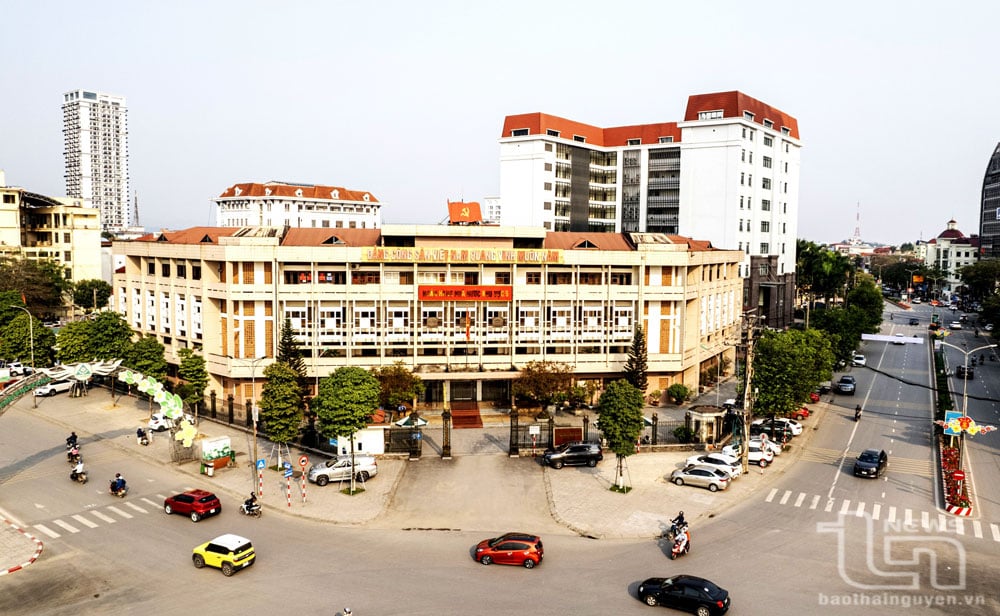Many loopholes for banks to do real estate business
According to Mr. Le Hoang Chau, Chairman of the Ho Chi Minh City Real Estate Association, Clause 2, Article 90 of the Law on Credit Institutions 2010 and Clause 2, Article 98 of the draft Law on Credit Institutions both stipulate: Credit institutions are not allowed to conduct any business activities other than banking activities; other business activities stated in the license granted to credit institutions by the State Bank.

Many opinions say that credit institutions should not participate in real estate investment.
However, Article 138 of the draft Law on Credit Institutions on Real Estate Business stipulates: Credit institutions are not allowed to do real estate business, except in the following cases: Purchasing, investing in, owning real estate to use as business headquarters, working locations or warehouse facilities directly serving the professional activities of the credit institution; Leasing a part of the business headquarters owned by the credit institution that has not been fully used; Holding real estate due to debt settlement. Within 5 years from the date of the decision to handle the secured property being real estate, the credit institution must sell, transfer or repurchase this real estate to ensure the investment ratio in fixed assets and the purpose of using fixed assets as prescribed in this law.
"Financial institutions are given the green light thanks to regulations allowing them to purchase, invest in, and own real estate for use as business headquarters and workplaces, and are allowed to lease out a portion of their unused business headquarters. This regulation has led to a trend of financial institutions expanding their network of branches, workplaces, and warehouses, especially building magnificent office buildings to both serve as headquarters and have a significant portion for real estate leasing," Mr. Chau analyzed.
Similarly, the current regulation allowing "holding real estate due to debt settlement" within 3 years from the date of the decision to handle the secured assets has created "room" for credit institutions to conduct real estate business activities no different from a professional real estate business enterprise. "Now the draft Law on Credit Institutions increases the permitted period for holding real estate due to debt settlement to 5 years, which will further expand the scope for real estate business activities. Therefore, it is more reasonable to retain the regulation allowing credit institutions to only hold real estate due to debt settlement within 3 years as before," Mr. Chau pointed out.
Mr. Chau commented that the regulations giving the green light to credit institutions to conduct real estate business activities are not consistent with the spirit of the regulations that credit institutions are not allowed to conduct any business activities other than banking activities and credit institutions are not allowed to conduct real estate business. "Therefore, it is recommended that credit institutions are not allowed to conduct any business activities other than banking activities, except for other business activities stated in the license granted by the State Bank to credit institutions. At the same time, the State Bank should closely consider the permission to conduct other business activities stated in the license granted by the State Bank to credit institutions, especially real estate business activities for office leasing depending on the capacity of each credit institution," Mr. Le Hoang Chau suggested.
LIMITING RISK FOR BANKS
According to Lawyer Pham Lien, HTC Vietnam Law Firm, the current law stipulates that commercial banks are not allowed to do real estate business, because the nature of real estate assets is fixed, liquidity is not as high as cash, although commercial banks are also enterprises and have the goal of seeking profit. When commercial banks use mobilized capital to invest in a real estate project, when they need to get this capital back in a short time, it will be very difficult.
Therefore, the possibility of insolvency is very high, affecting the legitimate rights and interests of customers and people. Not only that, this also affects and poses risks to the system. For these reasons, the law strictly prohibits commercial banks from investing in real estate business (except for cases of investing in business headquarters serving the bank's operations; debt settlement; subleasing premises...) to ensure the interests of customers depositing money in the bank, while ensuring the management order of the State Bank.
Mr. Huynh Phuoc Nghia, Deputy Director of the Institute of Innovation (Ho Chi Minh City University of Economics), also agrees that at this time, the issue of credit institutions being allowed to do real estate business should not be raised. Therefore, the regulations should be kept as before. Because the main function of credit institutions is to do money business, mobilizing savings to "pump" money into businesses and the economy. Now, if we create loopholes for banks to do real estate business, the role of credit business will be affected, many banks will rush into real estate business, which is dangerous for monetary security. Because the real estate sector is a risky sector, with frequent crises. If we use mobilized money to invest in projects, invest in real estate, in case it cannot be sold, the money will be "soaked" in real estate. At that time, it will affect the interests of depositors, even pose risks for credit institutions.
"The main task of credit institutions is to prioritize providing capital for the economy. Looking at the situation like SCB Bank, we see that capital buried in real estate reduces the efficiency of capital use. When banks have problems, the state must participate in restructuring," Mr. Nghia said, adding that other countries also do not encourage credit institutions to do real estate business.
It is necessary to amend and supplement to strictly regulate the cases in which credit institutions are allowed to "conduct other business activities" or "conduct real estate business activities" and it is necessary to consider regulating the ceiling rate of "real estate business revenue not exceeding...% of credit institution's revenue" (can be considered not to exceed about 15% of credit institution's revenue).
Mr. Le Hoang Chau , Chairman of Ho Chi Minh City Real Estate Association
Source link


![[Photo] Looking back at the impressive moments of the Vietnamese rescue team in Myanmar](https://vstatic.vietnam.vn/vietnam/resource/IMAGE/2025/4/11/5623ca902a934e19b604c718265249d0)


![[Photo] "Beauties" participate in the parade rehearsal at Bien Hoa airport](https://vstatic.vietnam.vn/vietnam/resource/IMAGE/2025/4/11/155502af3384431e918de0e2e585d13a)

























![[Photo] Summary of parade practice in preparation for the April 30th celebration](https://vstatic.vietnam.vn/vietnam/resource/IMAGE/2025/4/11/78cfee0f2cc045b387ff1a4362b5950f)
































































Comment (0)